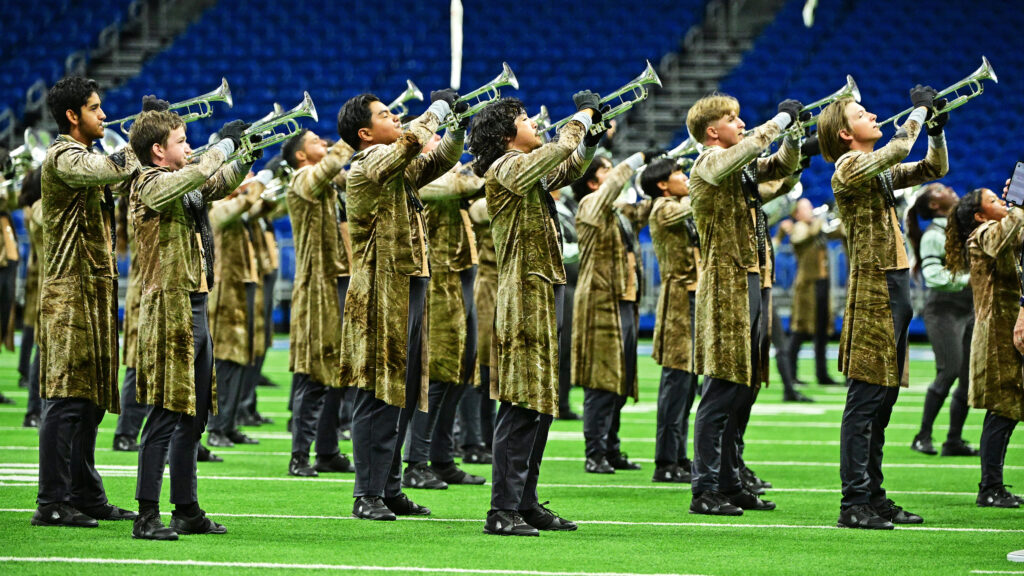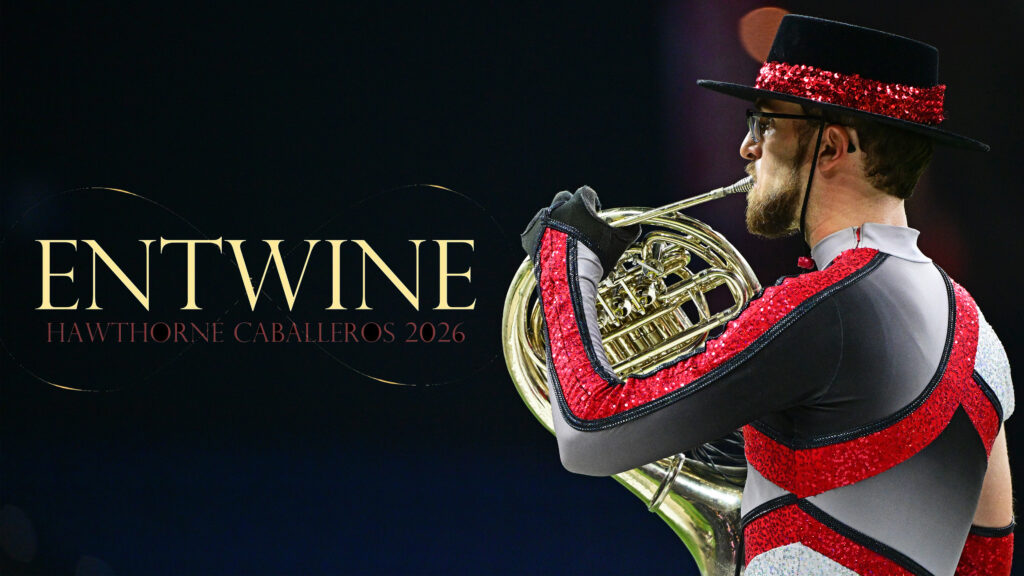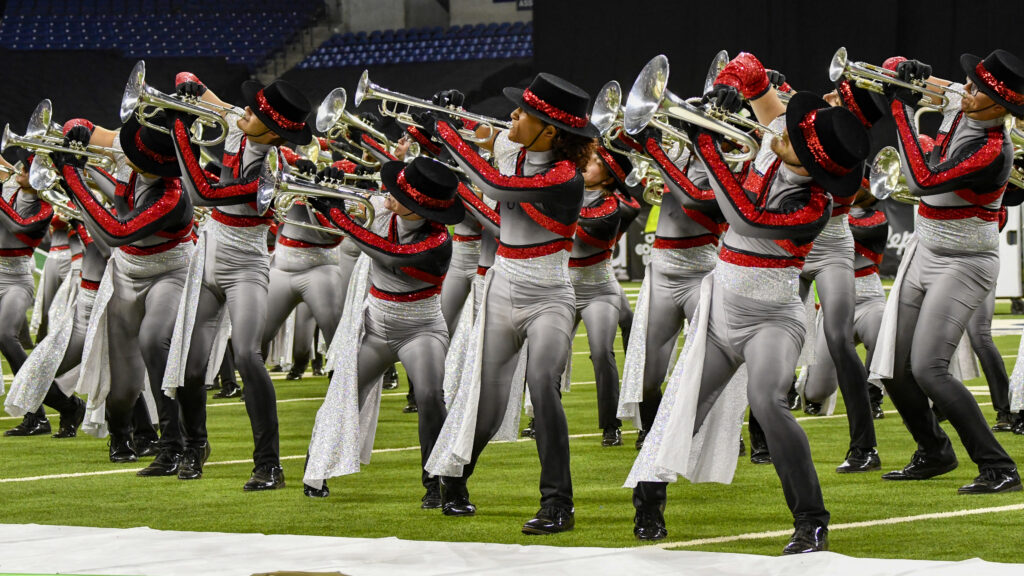The 1981 Drum Corps International World Championships went to Montreal for the first of two consecutive years.
For the first time since DCI’s first championship in 1972, all top-six corps in the Finals competition surpassed 90 points in their final score.
Santa Clara Vanguard won the Finals after placing seventh the year before, making the corps the only unit to win the DCI title after not being among the top six corps the previous year. Blue Devils placed a close second; just three tenths of a point from earning DCI’s first three-peat, this despite the corps finishing ninth in percussion.
As it wouldn’t be until 1982 that PBS was able to work out live broadcasting from outside the U.S., the annual DCI-PBS telecast originated from the DCI Midwest Regional in Whitewater, Wisconsin, held two weeks prior to the Montreal shows.
The Madison Scouts kicked off their 1981 production with the hot Latin jazz “Numero Uno,” written by Louis Bellson and Jack Hayes for Louis Bellson’s Explosion Orchestra. The piece was the final track to the band’s 1978 album, “Sunshine Rock.” Bellson was a famous American jazz drummer, composer, and bandleader.
Starting in the upper left corner of the field, the Scouts’ drill formations quickly evolved into an angled rendition of the group’s trademark fleur-de-lis, with the color guard flags as the top of the form and the rifles the bottom. The entire shape then rotated to be symmetrical to the 50-yard line. Almost like magic, small flags appeared on the tips of the rifles, one of the more unique color guard moments of the year.
A brief 45 seconds of the lovely second movement of Joaquin Rodrigo’s “Concierto de Aranjuez,” composed in 1939 for guitar and orchestra and inspired by palace gardens in Spain, provided a short breather for the corps and audience members alike.
The snippet of the famous melody led into “Malegueña,” written by Cuban pianist Ernesto Lecuona as the sixth movement of his 1928 “Andalucia Suite” for piano. All color guard members spun flags for the scorching rendition of Bill Holcomb’s arrangement of the melody, written for Stan Kenton’s “Adventures in Jazz” album of 1962 and also a setting performed by the Scouts numerous times.

Pierre Moerlen wrote “Downwind” for his 1979 jazz-fusion album of the same name, performed by his band, Pierre Moerlen’s Gong. The group was known for its extensive use of mallet keyboard percussion, which made the piece perfectly suited as a drum corps percussion feature. During the Madison Scouts’ rendition, all color guard members were seen spinning rifles while the horn line members were spinning swing flags. With the contras providing a bass line, the rifles executed a sequential toss that paralleled the sequential kneeling on one leg and dipping of flags in front and back of the two lines of rifles. The front line of rifles then jumped over the front line of flags, resulting in perhaps the loudest crowd reaction of the year.
The tender closing ballad of Marvin Hamlisch’s “Through the Eyes of Love” was brought back from Scouts’ 1980 show. The song was sung by Melissa Manchester in the 1978 romantic comedy film, “Ice Castles,” the story of a figure skater who learned how to love and skate again after an accident that made her blind. The piece started with a French horn solo, which was somewhat rare for the time period. The Scouts had been holding onto marching French horns until 1992 while other corps had begun the switch to mellophones, largely due to intonation issues.
In a new key, two large back-to-back arcs of brass players rotated during a soprano bugle solo to face forward, heading into another key change that led into a company front. That front pushed forward to the final drill form of the show, taking the corps to third place in Montreal, just 1.40 points short of a second DCI title.
1981 Overview

Michael Boo was a member of the Cavaliers from 1975-1977. He wrote about the drum corps activity for more than 35 years while serving as a staff writer for various Drum Corps International projects. During his lifetime Boo wrote for numerous other publications including an honors-winning book on the history of figure skating. He also was an accomplished composer. Boo passed away in 2020 and was inducted into the DCI Hall of Fame posthumously in 2021.





